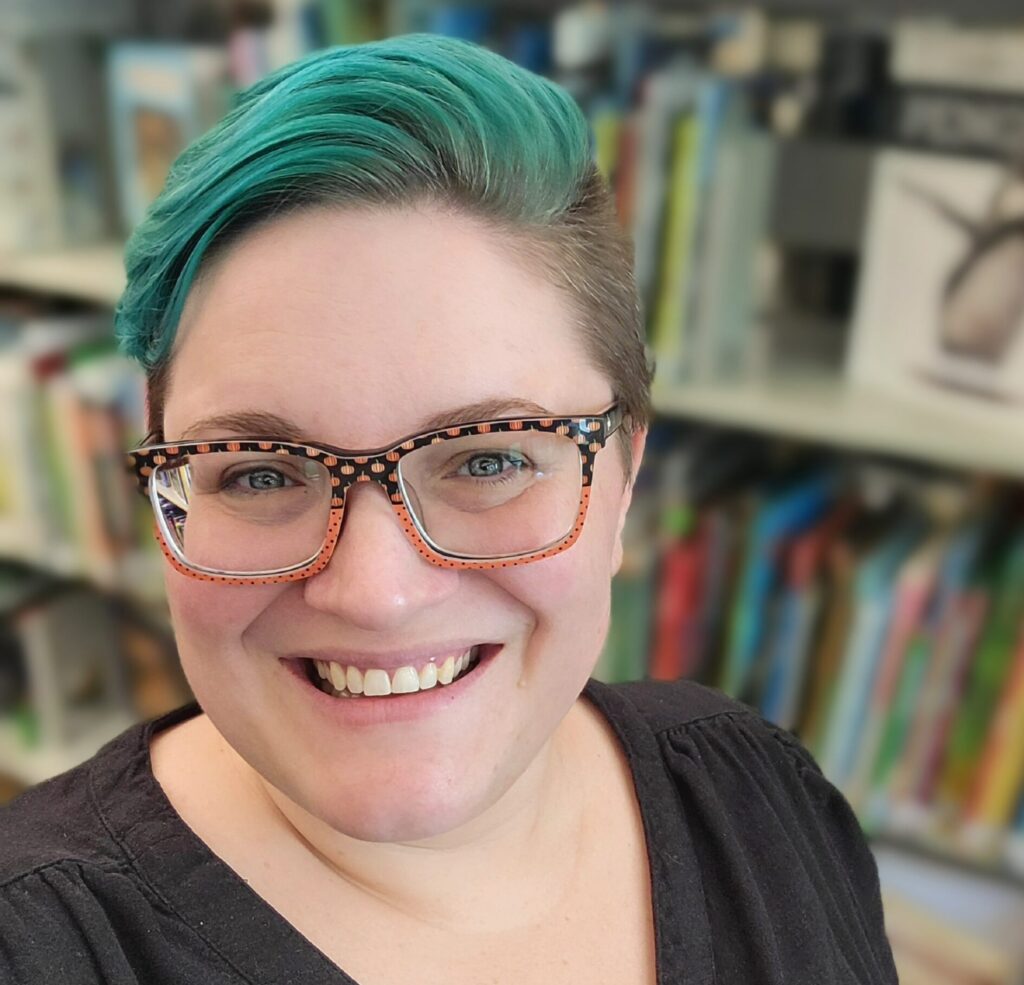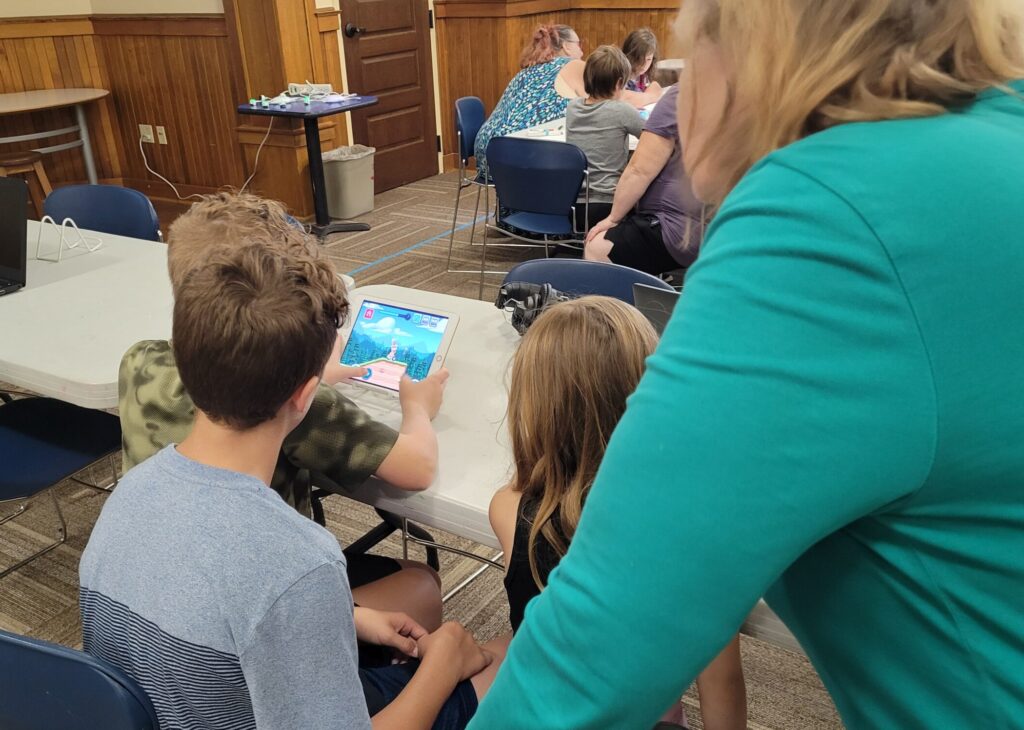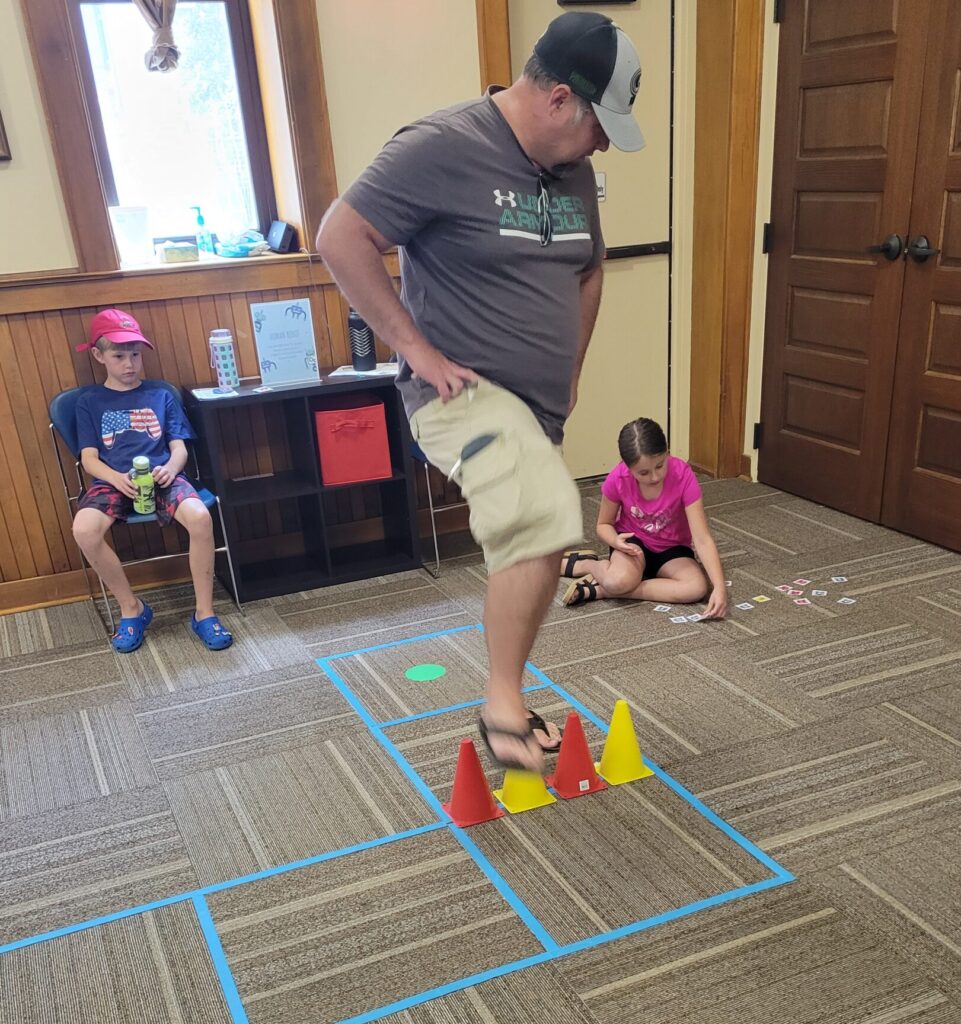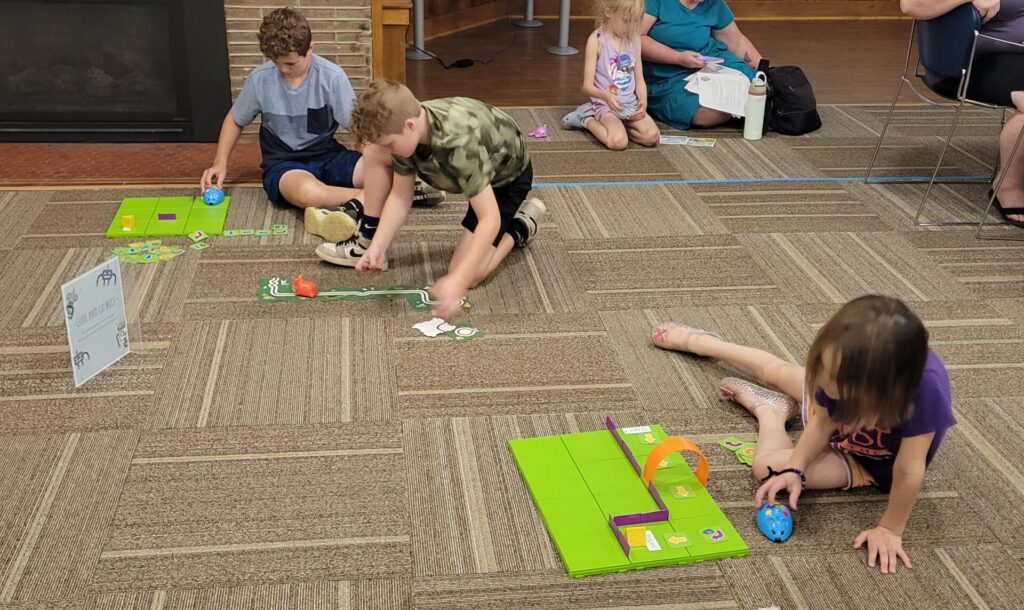PBS KIDS programming at Edgerton Public Library sparks learning for the whole family
Low-tech activities received high praise from families attending Edgerton Public Library’s recent Robots and Rovers program.
10/21/24
Low-tech activities received high praise from families attending Edgerton Public Library’s recent Robots and Rovers program.
10/21/24
Low-tech activities received high praise from families attending Edgerton Public Library’s recent Robots and Rovers program. Hands-on learning stations gave kids and their grown-ups opportunities to explore coding and programming together at drop-in sessions offered over the summer.
Children’s services coordinator Stephanie Unertl developed the program as part of her participation in the 2024 PBS KIDS Library Educator and Community Learning Cohort. The annual cohort is designed to empower educators to integrate educational PBS KIDS content into their learning spaces.

Stephanie Unertl, children’s services coordinator at Edgerton Public Library.
Unertl said she applied for the cohort because, “It was an opportunity to hear about programming at other libraries, do some hands-on exploration of PBS’s digital resources for children and their families, and a great opportunity to refresh what I already knew about media use/integration for young children and play-to-learn focused programming.”
“A crucial part of the cohort experience is participants designing and facilitating their own PBS program or effort,” said Mouna Algahaithi, PBS Wisconsin Early Learning Engagement Specialist and cohort designer. “This gives them the chance to put their learning and resource exploration into practice. It gives them a chance to see how seamless PBS resources fit into their programmatic efforts, and they become tools many librarians carry into their practice well beyond the cohort experience.”

Kids play and problem-solve on the Ready Jet Go! Bot Builder app.
Unertl chose a STEAM (science, technology, engineering, art and math) focus, building on games and activities from the PBS KIDS series Ready Jet Go!
“It featured six different exploration stations featuring PBS KIDS games on iPad and computer, PBS KIDS printable activities, low-tech coding/programming experiences,” Unertl explained.
At one station, participants used simple coding skills to help robot mice reach a piece of cheese. At another, participants arranged coding cards to give “human robots” directions.

Many of the kids had learned basic programming and coding concepts during the school year, empowering them to be the “experts” at various stations.
“It was definitely cool to hear parents express their excitement in getting to see and experience first hand what their children are doing in the STEM classroom during the school year!” Unertl said. “My biggest takeaway from the program is that adults like to play as much as kids do! Running this one as a family program was great because siblings across a huge variety of ages were able to explore the same concepts and interact closely with one another in problem situations with their grown-ups at their side.”

Kids program robot mice during a Robots and Rovers session.
The cohort experience has also prompted Unertl to look further into possible ways she can integrate technology into story times and after-school elementary STEAM programs.
“PBS KIDS has a plethora of resources for hands-on activities like crafts that I can just pull and use when I’m looking for something new to try,” she said.
She encourages anyone considering applying for the next cohort to go for it.
“It’s a great opportunity to reflect on your own media-integration practices and play-to-learn pedagogy in your programming,” Unertl said. “It’s also a great way to connect with other librarians across the state and hear what their libraries are doing and to keep on top of the resources PBS KIDS has created for kids and their adults at home.”
The application for the 2025 PBS KIDS Library Educator and Community Learning Cohort is available now. The deadline to apply is November 15.
What do you think?
I would love to get your thoughts, suggestions, and questions in the comments below. Thanks for sharing!
Tawny Morrison